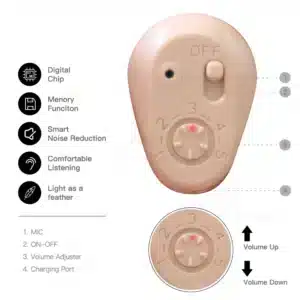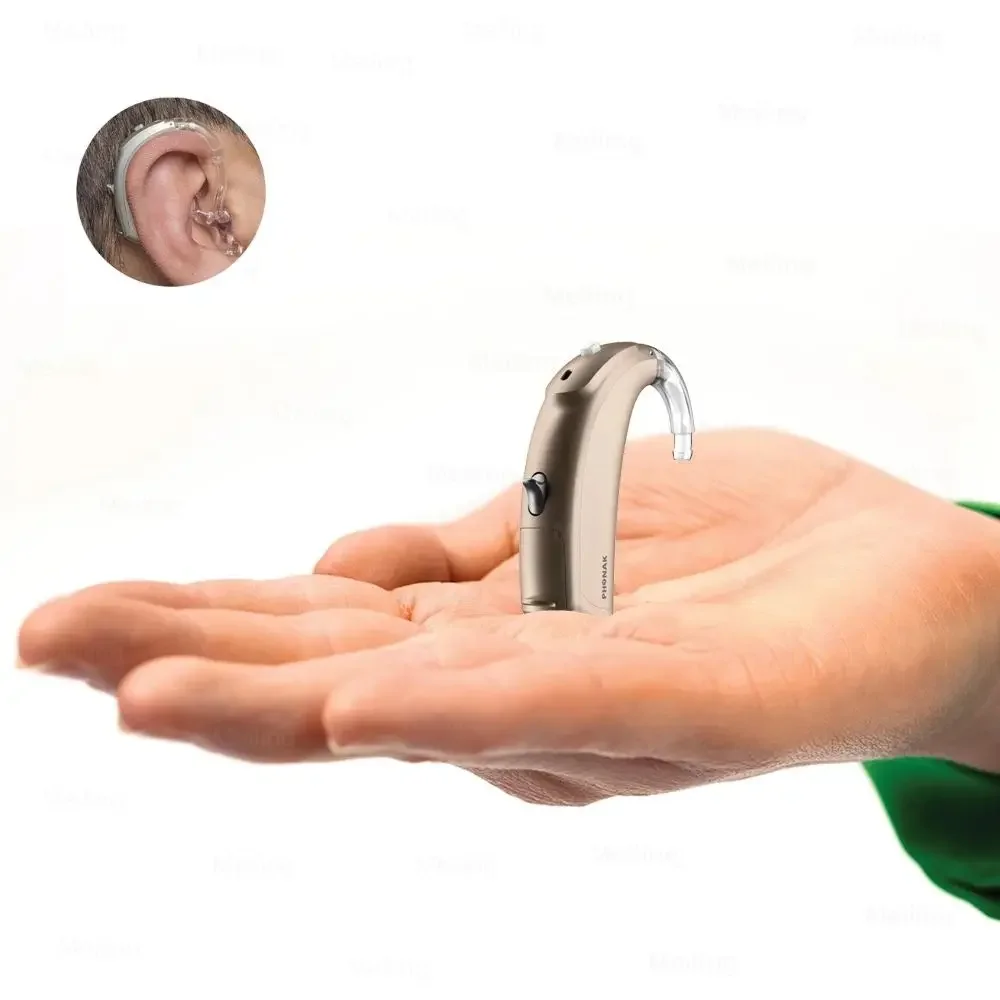Ear Ringing
Why is my left ear fluttering? Ringing in the ears, also known as tinnitus, can be quite bothersome. It might be caused by various factors such as exposure to loud noises, ear infections, ear wax buildup, or even certain medications. If you’re experiencing persistent or severe ringing, it’s a good idea to consult with a healthcare professional. They can help determine the underlying cause and suggest appropriate treatment options.
Why is my Left Ear Fluttering?
The sensation of your left ear fluttering could be due to a few different reasons:
- Muscle Spasms: Sometimes, small muscles in the ear can twitch or spasm, causing a fluttering sensation. This is usually harmless and can happen due to fatigue, stress, or caffeine intake.
- Eustachian Tube Dysfunction: The Eustachian tube connects the middle ear to the back of the throat and helps regulate pressure in the ear. Dysfunction or changes in pressure can cause fluttering sensations.
- Inner Ear Issues: Conditions affecting the inner ear, such as Meniere’s disease, can cause fluttering sensations along with other symptoms like vertigo or hearing loss.
- Nervous System: Occasionally, issues with the nerves that control the muscles of the ear can cause fluttering sensations. – Why is my Left Ear Fluttering?

How Long Can Tinnitus Last?
The duration of tinnitus (ringing or other noises in the ears) can vary widely depending on its underlying cause and individual factors. Tinnitus can be temporary or persistent, and it may last for:
- Temporary Tinnitus: This type of tinnitus can last for a short period, such as a few seconds to a few minutes. It’s often associated with exposure to loud noises (temporary threshold shift) or changes in pressure (such as when flying or diving).
- Acute Tinnitus: Acute tinnitus can persist for several days to a few weeks. It can be caused by factors like ear infections, ear wax buildup, or sudden exposure to loud noises.
- Chronic Tinnitus: Chronic tinnitus is persistent and lasts for more than six months. It may be caused by conditions like age-related hearing loss, noise-induced hearing loss, Meniere’s disease, or other underlying health conditions.
- Intermittent Tinnitus: Some individuals experience tinnitus that comes and goes over time, with varying intensity and duration.
It’s important to note that tinnitus itself is a symptom rather than a disease, and its duration depends on addressing the underlying cause. -Why is my Left Ear Fluttering?
Will High Blood Pressure Cause Ringing in Ears?
Yes, high blood pressure (hypertension) can contribute to or exacerbate tinnitus (ringing in the ears). Here’s how:
- Increased Blood Flow: High blood pressure can cause increased blood flow through the blood vessels in the ears and other parts of the body. This increased blood flow can sometimes be perceived as a pulsatile or rhythmic sound in the ears, often described as a pulsing or whooshing noise.
- Vascular Issues: Hypertension can also lead to vascular changes, including damage to small blood vessels in the inner ear. This can disrupt normal blood flow and contribute to tinnitus.
- Medication Side Effects: Some medications used to treat high blood pressure, such as certain diuretics or beta-blockers, may list tinnitus as a possible side effect.
It’s important to note that while hypertension can contribute to tinnitus, it is often not the sole cause. Many people with high blood pressure do not experience tinnitus, and tinnitus can have multiple underlying causes, including exposure to loud noises, ear infections, ear wax buildup, and other health conditions.

How to Get Rid of Echo Sound in Ear :- Why is my Left Ear Fluttering?
Experiencing an echo or reverberation sound in your ear can be unsettling and disruptive. Here are some potential causes and steps you can take to address it:
Potential Causes:
1. **Earwax Buildup**: Accumulation of earwax can cause sounds to reverberate differently in your ear canal.
2. **Eustachian Tube Dysfunction**: Issues with the Eustachian tube can cause changes in pressure and affect how sounds are perceived in the ear.
3. **Inner Ear Issues**: Conditions affecting the inner ear, such as Meniere’s disease, can cause changes in how sounds are processed, leading to echoes or other auditory distortions.
4. **External Factors**: Exposure to loud noises or changes in atmospheric pressure (such as when flying) can temporarily affect how sounds are heard.
Steps to Address Echo or Reverberation:
1. **Consult a Healthcare Professional**: If the echo sound persists or is accompanied by other symptoms like pain, dizziness, or hearing loss, it’s essential to consult with an ear, nose, and throat (ENT) specialist or audiologist. They can conduct a thorough examination to determine the underlying cause.
2. **Earwax Removal**: If earwax buildup is suspected, do not attempt to remove it yourself with objects like cotton swabs, as this can push wax deeper into the ear canal or cause injury. A healthcare professional can safely remove excess earwax using specialized tools or techniques.
3. **Address Underlying Conditions**: If the echo sound is due to conditions like Eustachian tube dysfunction or inner ear issues, your healthcare provider may recommend specific treatments or therapies to manage these conditions effectively.
4. **Environmental Adjustments**: If the echo sound is noticeable in specific environments (such as places with high background noise or during changes in atmospheric pressure), taking breaks or using ear protection in noisy environments may help reduce symptoms.
5. **Medication Adjustment**: If you suspect that medication side effects may be contributing to the echo sound, discuss this with your healthcare provider. They may adjust your medication regimen or provide alternative options.
6. **Manage Stress and Anxiety**: Sometimes, stress and anxiety can exacerbate auditory sensations like echoes or reverberations. Practicing relaxation techniques, such as deep breathing or mindfulness, may help reduce symptoms.
Addressing echo or reverberation in the ear typically requires identifying and managing the underlying cause.

Ear Drum Spasm :- Why is my Left Ear Fluttering?
An ear drum spasm can be quite uncomfortable and may feel like a fluttering or twitching sensation in your ear. There are a few potential causes for this kind of sensation:
- Muscle Spasms: The tiny muscles in the middle ear, known as the tensor tympani and stapedius muscles, can sometimes twitch or spasm. This can be caused by stress, fatigue, or even excessive noise exposure.
- Ear Infections or Inflammation: Infections or inflammation in the ear can irritate the eardrum or the surrounding muscles, leading to spasms.
- Eustachian Tube Dysfunction: This tube helps equalize pressure in the middle ear. If it’s not functioning properly, it can lead to a feeling of fullness or odd sensations, which might be interpreted as a spasm.
- Temporomandibular Joint (TMJ) Issues: Sometimes, problems with the jaw joint can cause referred sensations or spasms in the ear area.
- Neurological Issues: Though less common, neurological conditions can sometimes cause abnormal sensations in the ear.
Why Does My Ear Drum Spasm
Ear drum spasms, or the sensation of twitching or fluttering in the ear, can be caused by several factors. Here are some common reasons:
- Muscle Spasms: The middle ear contains two small muscles, the tensor tympani and stapedius, which help regulate the tension of the eardrum and the movement of the tiny bones in the ear. These muscles can sometimes twitch or spasm due to stress, fatigue, or exposure to loud noises.
- Eustachian Tube Dysfunction: The Eustachian tube helps to equalize pressure between the middle ear and the outside environment. If this tube becomes blocked or is not functioning properly, it can create a sensation of pressure changes or cause spasms.
- Ear Infections or Inflammation: Conditions such as otitis media (middle ear infection) or inflammation of the eardrum can irritate the ear structures and lead to spasms.
- TMJ Disorders: The temporomandibular joint (TMJ) is located near the ear. Problems with the TMJ, such as grinding your teeth or clenching your jaw, can sometimes cause sensations or spasms in the ear.
- Stress or Anxiety: High levels of stress or anxiety can lead to various physical symptoms, including muscle spasms. The tiny muscles around the ear can be affected, leading to a spasm-like feeling.
- Neurological Issues: Although less common, neurological conditions or issues affecting the nerves around the ear can sometimes cause abnormal sensations or spasms.
Ear Drum Spasm Treatment :- Why is my Left Ear Fluttering?
Treatment for ear drum spasms depends on the underlying cause. Here are some general approaches that might help alleviate the symptoms:
- Muscle Relaxation:
- Stress Management: Reducing stress through relaxation techniques such as deep breathing, meditation, or yoga may help if stress is contributing to the spasms.
- Avoiding Loud Noises: Protect your ears from loud environments or sudden loud noises which could exacerbate muscle spasms.
- Eustachian Tube Dysfunction:
- Decongestants: Over-the-counter or prescribed decongestants can help if the Eustachian tube is blocked due to congestion or allergies.
- Nasal Steroids: These can reduce inflammation in the nasal passages and Eustachian tube.
- Ear Popping Techniques: Performing gentle techniques like yawning, swallowing, or the Valsalva maneuver (gently blowing while pinching the nose) can help equalize pressure.
- Ear Infections or Inflammation:
- Antibiotics: If an ear infection is present, antibiotics might be necessary, as prescribed by a healthcare provider.
- Anti-Inflammatories: Over-the-counter medications like ibuprofen or acetaminophen can help manage pain and inflammation.
- TMJ Disorders:
- Dental Treatment: If TMJ issues are suspected, consulting with a dentist or an oral specialist might be necessary. They may recommend a mouthguard or other treatments.
- Jaw Exercises: Specific exercises and stretches for the jaw might help alleviate symptoms.
- General Ear Care:
- Avoid Inserting Objects: Avoid inserting objects into your ear canal, as this can irritate the ear and potentially worsen the condition.
- Warm Compresses: Applying a warm compress to the ear can sometimes provide relief from discomfort.
Ear Drum Spasm With Noise :- Why is my Left Ear Fluttering?
Experiencing an ear drum spasm accompanied by noise can be particularly unsettling. This combination of symptoms could be due to a few potential causes:
- Muscle Spasms: The middle ear contains the tensor tympani and stapedius muscles, which can spasm and cause a fluttering or clicking sound. This might be more noticeable if you’re in a quiet environment or if there’s a sudden change in pressure or sound.
- Eustachian Tube Dysfunction: If the Eustachian tube is not functioning properly, you might experience a sensation of fullness, pressure changes, or a clicking sound in addition to spasms. This can happen due to congestion, allergies, or infections.
- Ear Infections or Inflammation: Infections or inflammation in the ear can lead to a variety of symptoms, including noises like clicking, popping, or crackling, along with discomfort or spasms.
- Temporomandibular Joint (TMJ) Disorders: TMJ issues can cause referred sensations in the ear, including noises and spasms. The clicking sound might be related to jaw movement or dysfunction.
- Auditory Neuropathy: This is a condition where the nerves responsible for transmitting sound to the brain are affected, which can sometimes cause abnormal sounds or sensations in the ear.
Treatment and Management
- Muscle Spasms:
- Stress Management: Techniques such as deep breathing, relaxation exercises, and reducing exposure to loud noises can help.
- Ear Protection: Use earplugs in noisy environments to prevent further irritation.
- Eustachian Tube Dysfunction:
- Decongestants: Over-the-counter decongestants or nasal sprays can help relieve pressure.
- Ear Pressure Relief: Try yawning, swallowing, or the Valsalva maneuver to equalize pressure.
- Ear Infections or Inflammation:
- Medical Treatment: Seek medical attention for infections. Your doctor may prescribe antibiotics or anti-inflammatory medications if needed.
- Warm Compresses: Applying a warm compress can help alleviate discomfort.
- TMJ Disorders:
- Dental Consultation: Consult a dentist or an oral specialist who might recommend a mouthguard or other treatments for TMJ issues.
- Jaw Exercises: Gentle jaw exercises might help relieve tension.
- Consult a Specialist:
- ENT Specialist: If the symptoms persist or are severe, see an ENT specialist for a thorough evaluation and targeted treatment.
If you experience persistent, severe, or worsening symptoms, or if you have additional symptoms like hearing loss or significant pain, it’s crucial to seek medical advice to determine the cause and receive appropriate treatment.
Can you Get a Spasm in your Ear Drum?
While the term “ear drum spasm” might not be entirely accurate, it is possible to experience spasms or involuntary contractions in the small muscles of the middle ear that can affect the ear drum (tympanic membrane). Here’s a breakdown:
Understanding Ear Muscle Spasms
- Muscles Involved:
- Tensor Tympani Muscle: This muscle attaches to the ear drum and can contract to increase tension on the tympanic membrane. Spasms in this muscle can cause a fluttering or twitching sensation.
- Stapedius Muscle: This muscle helps stabilize the stapes bone (one of the three small bones in the middle ear) and can also affect ear sensations if it spasms.
- Possible Sensations:
- Fluttering or Twitching: You might feel a fluttering, twitching, or vibrating sensation in the ear if these muscles are spasming.
- Clicking or Popping: These sounds might occur if the spasms affect the movement of the ear drum or the tiny bones in the middle ear.
Causes of Ear Muscle Spasms
- Stress and Anxiety: High stress levels can cause muscle tension and spasms throughout the body, including in the muscles around the ear.
- Exposure to Loud Noises: Sudden or prolonged exposure to loud sounds can irritate the middle ear muscles.
- Ear Infections or Inflammation: Conditions that affect the ear can sometimes lead to muscle spasms.
- Eustachian Tube Dysfunction: Problems with the Eustachian tube can affect ear pressure and potentially lead to spasms.
- TMJ Disorders: Issues with the temporomandibular joint can refer sensations to the ear and cause spasms in surrounding muscles.
Management and Treatment
- Stress Reduction: Techniques like relaxation exercises, meditation, or stress management can help if stress is contributing to the spasms.
- Avoid Loud Noises: Protect your ears from loud environments and sudden loud sounds.
- Consult a Healthcare Professional: If the spasms are persistent, painful, or associated with other symptoms like hearing loss or dizziness, it’s important to consult an ENT specialist or a healthcare provider for a proper diagnosis and treatment plan.
Any foods Cause Ear Spasm Ear Drum :- Why is my Left Ear Fluttering?
While there isn’t a direct, well-established link between specific foods and ear drum spasms, some foods and dietary factors could potentially influence ear health or contribute to conditions that might lead to ear symptoms. Here are a few dietary considerations that might indirectly affect ear health:
- High-Sodium Foods: Excessive salt intake can lead to fluid retention and increased blood pressure, which might affect the Eustachian tube and lead to feelings of fullness or pressure in the ear. This might not directly cause ear drum spasms but could contribute to discomfort.
- Caffeinated Beverages: High caffeine consumption can lead to dehydration, which might impact overall ear health and potentially exacerbate existing issues.
- Alcohol: Alcohol can dehydrate the body and affect fluid balance, which might influence ear conditions or contribute to issues with the Eustachian tube.
- Foods Causing Allergies or Sensitivities: Allergic reactions or sensitivities to certain foods might lead to inflammation or congestion in the nasal passages and Eustachian tube, which could affect ear health. Common allergens include dairy products, nuts, and certain fruits.
- Spicy Foods: Spicy foods might sometimes irritate mucous membranes and exacerbate symptoms related to sinus or Eustachian tube dysfunction, though this is generally less common.
- Histamine-Rich Foods: Foods high in histamines (such as aged cheeses, cured meats, and certain fermented foods) can potentially exacerbate symptoms in individuals who are sensitive to histamines.
If you suspect that your diet might be contributing to your ear symptoms, keeping a food diary and noting any correlation between what you eat and your symptoms might be helpful.
Can an Ear Drum have a Muscle Spasm :- Why is my Left Ear Fluttering?
Yes, the ear drum can be affected by muscle spasms, although it’s not the ear drum itself that spasms but rather the tiny muscles in the middle ear. The two main muscles involved are:
- Tensor Tympani Muscle: This muscle helps to tense the ear drum (tympanic membrane) and is involved in dampening loud sounds. Spasms or twitching in this muscle can cause a fluttering or twitching sensation in the ear.
- Stapedius Muscle: This muscle helps to stabilize the stapes bone (one of the small bones in the middle ear) and also assists in controlling sound vibrations. Spasms in this muscle can produce similar sensations, including a clicking or fluttering sound.
Possible Causes of Muscle Spasms in the Ear
- Stress and Fatigue: High levels of stress or exhaustion can lead to involuntary muscle contractions or spasms, including in the small muscles of the ear.
- Exposure to Loud Noises: Sudden or prolonged exposure to loud noises can irritate the muscles in the ear, leading to spasms.
- Eustachian Tube Dysfunction: Problems with the Eustachian tube can sometimes affect the middle ear muscles and lead to spasms or unusual sensations.
- Middle Ear Conditions: Infections, inflammation, or other conditions affecting the middle ear can sometimes irritate these muscles, leading to spasms.
- TMJ Disorders: Issues with the temporomandibular joint (TMJ) can sometimes refer sensations to the ear and cause spasms in the muscles around the ear.
Management and Treatment
- Stress Reduction: Techniques such as relaxation exercises, meditation, and managing stress can help reduce muscle spasms.
- Avoid Loud Noises: Protect your ears from loud environments to prevent irritation of the ear muscles.
- Consult a Specialist: If the spasms are persistent, painful, or accompanied by other symptoms like hearing loss or dizziness, it’s a good idea to see an ENT specialist or a healthcare provider. They can provide a thorough evaluation and appropriate treatment.
How to Stop Ear Drum Spasm?
If you’re experiencing spasms or twitching sensations related to the ear drum, there are several strategies you might consider to alleviate the discomfort. The approach depends on the underlying cause, but here are general methods that could help:
General Strategies
- Reduce Stress:
- Relaxation Techniques: Practice deep breathing, meditation, or other stress-relief exercises. Stress can contribute to muscle spasms, including those in the ear.
- Avoid Loud Noises:
- Protect Your Ears: Use ear protection or avoid noisy environments to prevent irritation to the ear muscles.
- Stay Hydrated:
- Proper Hydration: Drink plenty of water to maintain overall body hydration, which can help with general muscle function and health.
- Warm Compress:
- Apply Heat: Using a warm compress around the ear area might help relax the muscles and alleviate discomfort.
Addressing Specific Causes
- Eustachian Tube Dysfunction:
- Decongestants: Over-the-counter decongestants or nasal sprays can help reduce congestion and balance ear pressure.
- Ear Pressure Techniques: Try yawning, swallowing, or the Valsalva maneuver (gently blowing while pinching your nose) to equalize pressure in the ear.
- Ear Infections or Inflammation:
- Medical Treatment: If an ear infection is suspected, consult a healthcare professional for appropriate treatment, which may include antibiotics or anti-inflammatory medications.
- TMJ Disorders:
- Jaw Exercises: Gentle exercises and stretches for the jaw may help if TMJ issues are contributing to ear symptoms.
- Dental Consultation: See a dentist or TMJ specialist for evaluation and treatment options, such as a mouthguard.
- Muscle Spasms:
- Relaxation Exercises: Engage in relaxation techniques to help ease muscle tension. Practicing relaxation can sometimes help reduce spasms.
- Avoid Triggers: Identify and avoid any specific triggers, such as loud noises or stress, that may be causing the spasms. – Why is my Left Ear Fluttering?
Facebook page
X page
Ear Ringing Treatment Remedy







